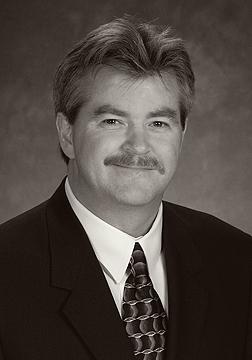Transforming crisis is a process and a way of looking at the world in which we live. As I refer to it in this blog it is not only a personal journey for me but one I believe we are witnessing in the medical community as well as the world around us. There is not a day that goes by that we are not bombarded with more news of the worsening health care crisis. It remains on the front page and there are few who have not been touched by the crisis in some manner. Just think, half of the bankruptcies in the United States are due to medically related bills and 75% of those individuals filing for bankruptcy had health insurance. Primum non nocere as we say in medicine or first do no harm. While our health care system has done some great things I believe we are reaching a point of diminishing returns and may be falling short of this maxim. I left medicine and decided to go wander in the desert for awhile. I didn't want to listen to any more bad news from the world of medicine. My initial plans were to write a book but there is something very fiendish about the process of writing. It appears to take on a life of its own. What really happens is that you end up learning more about yourself and the world you live in as result of the process of writing. In the course of writing I kept returning to my own bitter complaints about the world of medicine. Every day I wrote, my journal became more filled with angry entries. Every day I wrote, I swore this would be the last day I complained. And then of course I would wake up the next day and start the process all over again. The effect was cathartic but incomplete. For all my complaining about the state of our health care system I deeply felt something was missing. That all changed one evening while watching Book TV on CSPAN2. I happened to catch a program with Ray Kurzweil discussing his new book The Singularity is Near. Kurzweil, as you may know, is a writer, inventor and futurist. The concept of the singularity grabbed my attention. I had heard bits and pieces of it before but not in a way Kurzweil was explaining it. It wasn't just a concept for mathematicians and physicists there was potential for broad application in other disciplines.
I read the book and it was during this time that I began to see that what he was describing for the genetics, robotics, artificial intelligence and nanotech industries was probably having similar effects in other industries, especially medicine. It is one thing to make some fairly outrageous predictions about the future but it is another to back them up with an explanation of how you do it. (For more information see www.singularity.com.) Kurzweil uses the law of accelerating returns and the S-curve to assist him in predicting the future. The S-curve when viewed on a graph begins as a relatively flat line moving from left to right followed by an upward inflection point. This upward inflection point continues in an exponential manner in a line that moves almost straight up. It then begins to flatten out once again at the top of the curve as an asymptote. When applied to the growth cycle of a technology the entire cycle can be see as representing a paradigm or model for that technology. The classic example is in the semiconductor industry but it can also be applied to other technologies. Moving from one S-curve to another is considered a paradigm shift. I won't attempt to further explain something he does a much better job of doing in his book but will say it is a fascinating read if you have the time and according to Kurzweil if you can make it to the year 2045 you will have plenty of time. What struck me though was his description of how people act during the different phases of the S-curve. As I read it I became intrigued with the idea that our current health care system is an established paradigm. What if all this madness we are seeing in this system is really the birth of an emerging paradigm for a new health care system, not one based on the traditional US model or the European/Canadian socialistic model but something completely unique.
Is that what all this complaining is about(my own included)? If it is then it changes everything. These cries that the system is failing and crumbling before our eyes may be true. The old established system may be failing and crumbling before our eyes but there may also be a new emerging system that is developing before our eyes as well. We may be so focused on preserving the failing system when we really should be focused on nurturing the emerging system. The issues we interpret as crises may be the emerging paradigm's way of saying what needs to go in order for it to mature. Our attempts to fix our current health care system crises with a toolbox from the older established paradigm may be futile. Not only are our attempts to repair it futile but may be directing away precious resources. We spend so much of our time running around blaming one another for the smoke and ash none of us has realized there is a volcano erupting. When the dust settles and the magma cools the landscape is going to look much more different.
Subscribe to:
Post Comments (Atom)

No comments:
Post a Comment